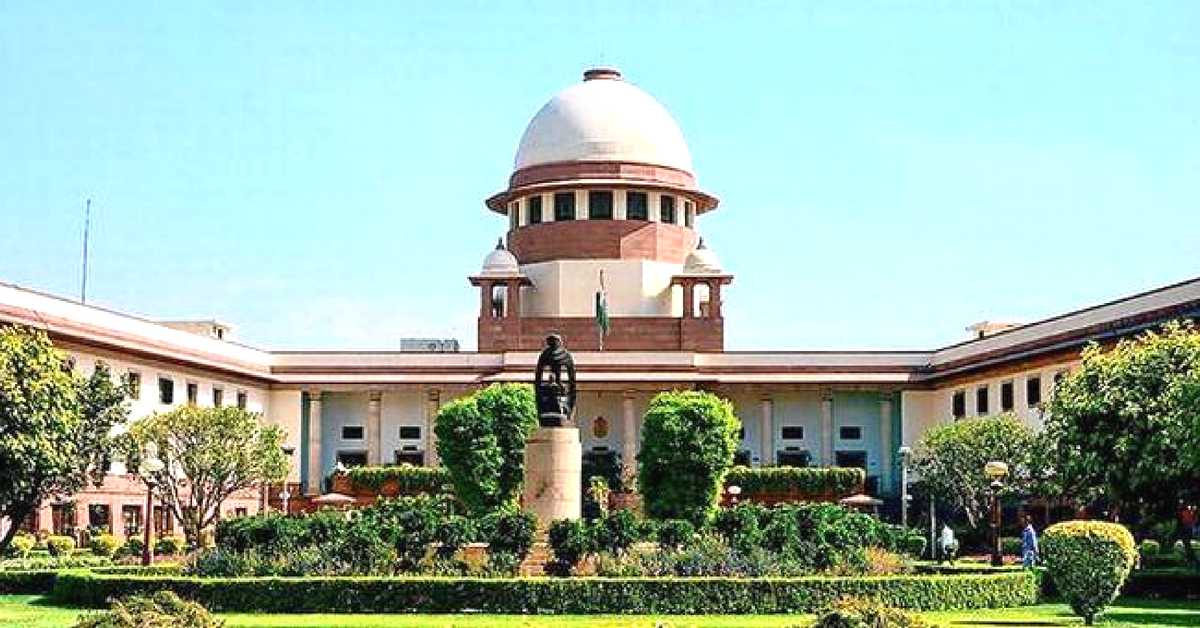Female Genital Mutilation Violates Fundamental Rights, Says Supreme Court
“Women do not live only for marriage and their husbands."

On Monday, the Supreme Court of India, took yet another firm stand on the practice of Female Genital Mutilation (FGM) by the Dawoodi Bohra Muslim community, reports News 18.
The Chief Justice of India, Dipak Misra, said that “women do not live only for marriage and their husbands” and have several other obligations beyond marriage, and also that “subjugation to a husband will not pass the test of constitutionality.”
Addressing the court on behalf of the Centre, Attorney General KK Venugopal stated that the United Kingdom, the United States, Australia and 27 African countries had banned this inhumane practice. He also argued that while male circumcision has some potential health benefits, including reducing the risk of contracting a sexually transmitted disease, the same couldn’t be said for women.
The court also said that the practice of FGM violates Article 21 and Article 15 of the Constitution (fundamental rights) that guarantees life and personal liberty and rejects discrimination on the grounds of religion, race, caste, sex or place of birth.

Supporting the petitioners’ plea that FGM is in “serious violations of basic fundamental rights of the victims who in these cases are minors,” the bench, which included Chief Justice Dipak Misra, Justice AM Khanwilkar and Justice DY Chandrachud, said that FGM is violative of Article 21 of the Constitution as it puts the female child through the trauma of female genital mutilation.
“Such a religious practice is covered under the Protection of Children from Sexual Offences (POCSO) Act,” which explicitly states that touching the genitals of a girl under 18 is an offence, the court had said earlier this month.
Also Read: This Initiative is Compelling Women to Create Change & Blaze their Path with Passion
To the uninitiated, the Dawoodi Bohra community, calls the custom of FGM as Khatna or Khafz, which involves a procedure of partially removing the clitoral hood. Young girls at the age of six or seven from these communities undergo these procedures conducted by doctors and midwives.
The clitoris is seen as an “immoral lump of skin” of a “source of sin” which needs to be removed so that women don’t stray away from their marriages.
(Edited by Gayatri Mishra)
Like this story? Or have something to share? Write to us: [email protected], or connect with us on Facebook and Twitter.
NEW: Click here to get positive news on WhatsApp!
If you found our stories insightful, informative, or even just enjoyable, we invite you to consider making a voluntary payment to support the work we do at The Better India. Your contribution helps us continue producing quality content that educates, inspires, and drives positive change.
Choose one of the payment options below for your contribution-
By paying for the stories you value, you directly contribute to sustaining our efforts focused on making a difference in the world. Together, let’s ensure that impactful stories continue to be told and shared, enriching lives and communities alike.
Thank you for your support. Here are some frequently asked questions you might find helpful to know why you are contributing?


This story made me
-
97
-
121
-
89
-
167











